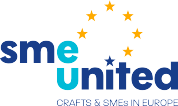On 12th October, the European Parliament and the Council of the European Union reached a provisional political agreement on the proposal to amend the European standardisation regulation. The amendment, part of the EU Standardiation Strategy published by the Commission last February, was then approved during the Coreper I meeting on 20th October.
In the words of the European Commission itself when welcoming the provisional agreement on 12th October:
"The Standardisation Regulation (EU) No 1025/2012 sets the framework for the European standardisation process, allowing the Commission to mandate the three European Standardisation Organisations (ESOs) – CEN, CENELEC and ETSI – to develop European standards in support of EU legislation. The amendment foresees that, when the Commission requests standards from these organisations, key decisions in the standards-development process are taken by the national standardisation bodies from the EU and the European Economic Area (EEA)."
The existing Regulation (EU) No 1025/2012 is crucial for the proper development of standards at European level, outlining, among other aspects, the relationship between the Commission and ESOs.
Given the importance of this instrument, in early 2022 the Commission proposed, as part of its new Standardisation Strategy, to amend this Regulation in order to ensure greater transparency regarding the decision-making processes within the ESOs, a fundamental aspect to guarantee the correct representation and participation of the civil society in European standardisation.
With this in mind, the proposed amendment, which has now been accepted by the European Parliament, the Council of the European Union, and the Coreper I, strengthens the concept that civil society and Member States must be duly involved in standardisation and decision-making processes, to "improve the functioning of ESOs and enhance member states’ representation in their decision-making processes" (© Council of the European Union)
Again in the words of the European Commission:
"The amendment foresees that, when the Commission requests standards from these organisations, key decisions in the standards-development process are taken by the national standardisation bodies from the EU and the European Economic Area (EEA). These national standardisation bodies are best placed to ensure an inclusive process with balanced stakeholder consultation and with due respect for EU values. This is particularly important in strategic areas, such as cybersecurity or hydrogen. The three European Standardisation Organisations will need to put in place administrative and good governance principles, which will enhance the openness, transparency and inclusiveness of the standardisation processes. In particular, they will draw on the expertise from all relevant parties, including industry, SMEs, civil organisations and academia."
In addition to this, the newly created Recital 4(a), on the need to guarantee the “essential” SMEs interests are represented within the ESOs and at national level, is warmly welcomed. This Recital, adding to the EC proposal, underlines once more the need for transparency and inclusiveness in the standardisation system, involving SMEs and all interested stakeholders.
EFESME welcomes this agreement, especially regarding the protection and respect of EU rights, and the direct involvement of SMEs and their associations in providing expertise to ESOs to make their administration and governance more open, transparent, and inclusive.
Useful links
- Council of the European Union press release
- European Commission press release
- EC Daily News on this topic
- Previous - EFESME synthesis of the New Standardisation Startegy
- Previous - EFESME press release on the New Standardisation Strategy



